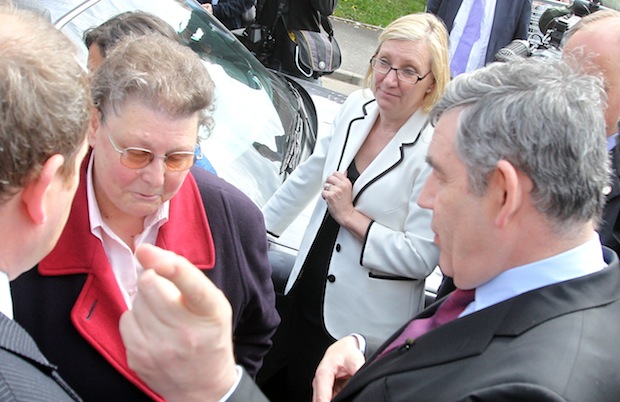We don’t quite know what Ed Miliband would really do about a lot of things just yet: this is the year when he plans (and desperately needs) to set that out so Labour isn’t just an Opposition that complains about things being expensive but a party that voters can imagine governing. But it’s significant that one of the policy areas where Miliband has felt it is important to get a lot of detail out pretty early is immigration. He, and everyone around him, is acutely aware that though their personal instincts might be to argue for the benefits of mass immigration to this country, the voters, rightly or wrongly, aren’t quite so keen. I look at the party’s new tough stance on immigration for the politics column in this week’s Spectator.
There is a debate about whether a tougher stance on immigration is the right one to take, and interestingly it is being played out mainly by those on the right of the party rather than the left. But it is entirely understandable from a political perspective that Labour should look back at what happened in 2010 and feel that a different direction on immigration is needed. Some senior ministers were agitating for greater recognition of voter concerns about the social impact of immigration in the parliamentary party as far back as 2006, but it took Gillian Duffy and the drubbing at the polls to drive that home.
For almost all the detail that the party has put out so far on where it stands on immigration, it’s worth reading Yvette Cooper’s speech to the IPPR in March 2013. She and colleagues are also considering plans for reform of freedom of movement in the EU which could form part of the party’s offer in the European elections on 22 May, I understand. This might be quite useful if, as currently expected, Labour does not go into that election campaign offering a referendum on Britain’s membership of Europe.
But for the 2015 campaign, there is one question that the party will have to answer that may confirm or undermine suspicions that voters have about where its heart truly is on this issue. The signs are currently that the Tories will not meet their target to cut net migration to the ‘tens of thousands’. But in the leaders’ debates, Cameron should still be able to get away with saying that immigration is down (it already formed one of the key achievements that his party plastered all over Manchester Central at the 2013 autumn conference), and that while the target wasn’t reached in this government, only by sticking with the Tories will voters be able to see immigration fall further. If Labour has either failed to commit to the flawed but tangible net migration target or failed to develop its own tangible target, then any tough-sounding language on this subject will also sound rather empty in the run-up to polling day.







Comments